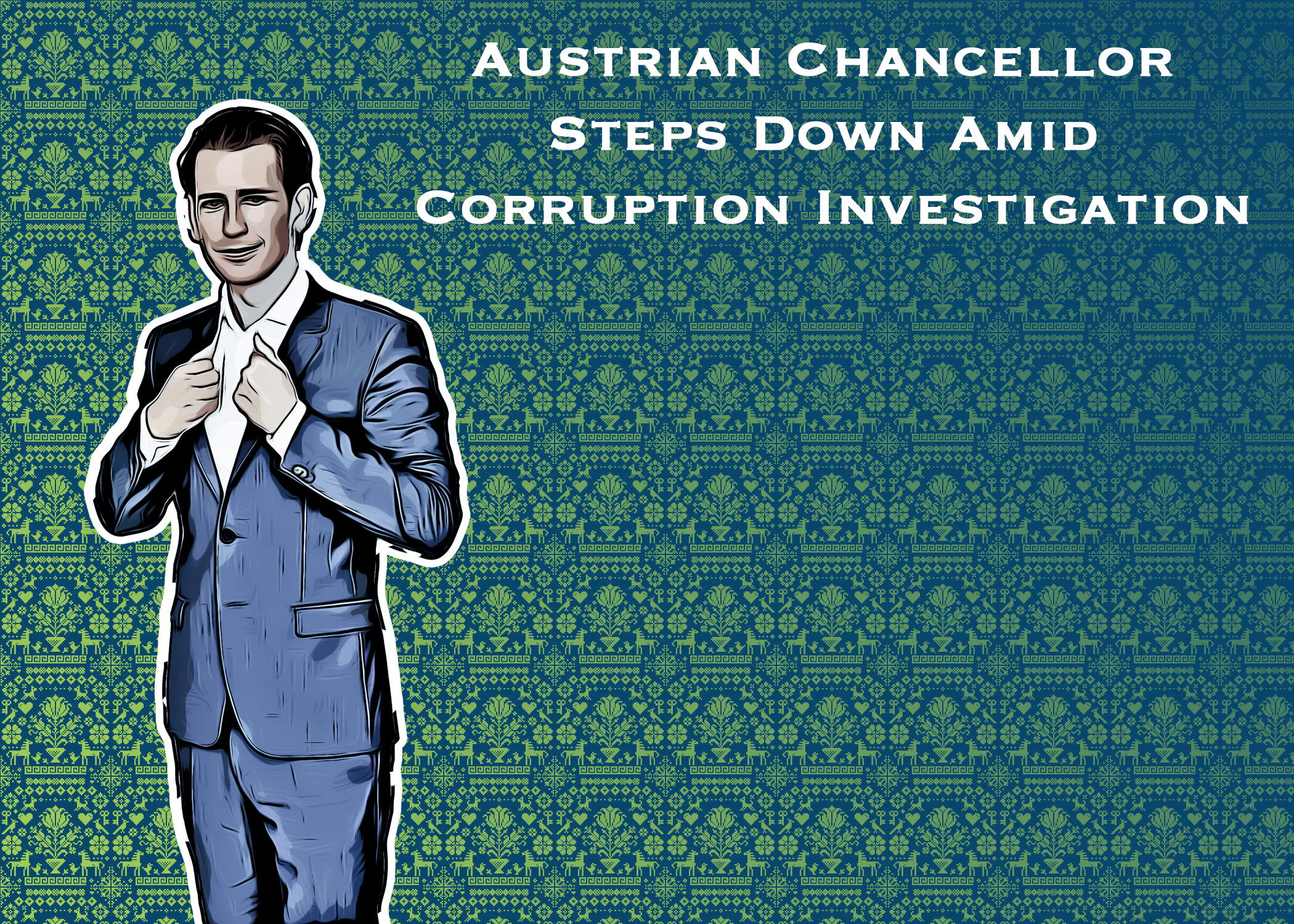
Austrian Chancellor Steps Down Amid Corruption Investigation
Austrian leader Sebastian Kurz said he was stepping down from his office Saturday evening, days after his office was raided by Austrian prosecutors investigating him and close team members on suspicion of bribery and breach of trust.
Kurz, speaking in a televised address on Austrian television said, “I want to make space to guarantee stability.”
However, the 35-year-old Chancellor said the corruption allegations against him were “wrong” and denied that he had used government money for political purposes.
Kurz said Foreign Minister Alexander Schallenberg would become the new chancellor, according to public broadcaster ORF.
Positive Media Coverage
Kurz is under investigation over claims that government money was used to ensure positive coverage in a daily newspaper, Austrian prosecutors announced Wednesday
The chancellor, along with nine other individuals and three organizations, is under investigation over the case, according to a statement from the Office of Austria’s Attorney General for Economic Affairs and Corruption (WKStA) published Wednesday.
According to the prosecutor, raids were carried out in several locations on Wednesday, including two government ministries, as part of the probe.
The statement said:
Between 2016 and at least 2018, budgetary funds from the finance ministry were used to finance exclusively party-politically motivated, sometimes manipulated surveys conducted by an opinion research company in the interest of a political party and its top management.
The period indicated in the public prosecutor’s statement correlates to when Kurz took over the leadership of the Austrian People’s Party (ÖVP), leading it into government through a coalition with the far-right Freedom Party after the 2017 legislative election.
“The survey results were published (without being declared as an advertisement) in the editorial section of an Austrian daily newspaper and other media belonging to the same group,” the statement read, adding that “suspected payments were made in return to the media company.”
Austrian media have identified the daily newspaper involved in the case as tabloid-format daily Österreich (Austria), which has rejected the accusations and denied any wrongdoing in multiple op-eds published this week.
Kurz Remains Party Leader
The corruption allegations against Kurz have caused a crisis in the Austrian government. Before Kurz’s resignation Saturday, opposition parties had threatened to bring a vote of no confidence against him in parliament on Tuesday.
Elected to the chancellorship in 2017, Kurz shrewdly turned one of Europe’s biggest crises — the refugee influx of 2015 — into a vote-winner at the ballot box.
Kurz arrived in power just as Chancellor Angela Merkel’s grip in neighboring Germany appeared to be weakening. He seemed keen to dismantle at least some of her welcoming approach to migrants and take the continent down a more hardline path, despite insisting regularly on his support for the European project.
His party was the driving force behind a law banning full-face Muslim veils in public spaces in 2017.
A spokesperson for the chancellery told CNN Sunday that Kurz is set to stay on as chairman of ÖVP and head of the parliamentary caucus. Kurz “enjoys the full support of the people’s party.”
Kurz said he was resigning so “the coalition can continue to work in the interest of the Austrian people,” the spokesperson said, adding that none of the house raids carried out by the prosecutors “concerned Kurz himself.”
Foreign Minister Alexander Schallenberg to Assume Chancellorship
Austrian Foreign Minister Alexander Schallenberg is expected to take over the chancellorship, following the resignation of Chancellor Sebastian Kurz.
Kurz, who has headed two governments over the last four years, has suggested that Schallenberg take over the top spot.
Schallenberg has also met with President Alexander Van der Bellen, and is expected to be sworn in within days.
Kurz’s decision to quit amid the graft allegations means that the governing coalition between his conservative Austrian People’s Party (OeVP) and the leftist Greens will continue. Green parliamentary group leader Sigrid Maurer said Schallenberg was not implicated in the corruption scandal.
Pressure on Kurz to resign, including from the Greens, started after prosecutors on Wednesday raided several locations linked to the OeVP. They announced that Kurz and nine other people were under investigation over claims that government money was used between 2016 and 2018 in a corrupt deal to ensure positive media coverage.
Kurz has denied any wrongdoing, saying that allegations against him were “false” and that he would seek to clear up the matter while he continues as party leader. The Greens had signaled that they would topple Kurz in a vote of no confidence on Tuesday in parliament if he did not stand down.
The OeVP-Greens coalition entered office in January 2020 and has already been strained several times by the fallout from other corruption scandals and differences over questions such as refugee policy.



